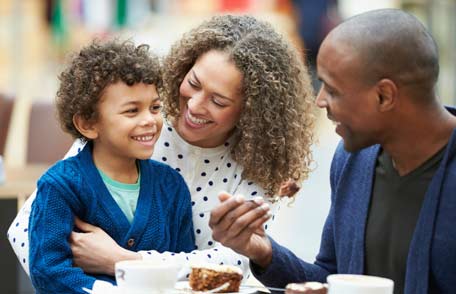
Lo que necesita saber
- Las bacterias E. coli que causan diarrea pueden propagarse mediante el agua o los alimentos contaminados.
- Lávese bien las manos con agua y jabón durante los momentos clave.
- Siga los cuatro pasos para la seguridad de los alimentos cuando los prepare: limpiar, separar, cocinar y enfriar.
- Tome precauciones con el agua y los alimentos cuando viaje al extranjero.
- No beba agua sin tratar ni trague agua cuando esté nadando o jugando en lagos, estanques, arroyos, piscinas o piscinas portátiles para niños.
- No se arriesgue alrededor de los animales, incluidos aquellos de los zoológicos interactivos, las granjas, las ferias y hasta los que estén en el patio de su casa.
Aunque la mayoría de los tipos de E. coli son inofensivos, algunos pueden hacer que se enferme. Aprenda sobre los tipos de E. Coli que causan diarrea y lo que puede hacer para reducir las probabilidades de infectarse.
¿Qué es la Escherichia coli?
La E. coli es una bacteria que se encuentra en los intestinos de las personas y los animales, en el medioambiente y, a veces, también en los alimentos y el agua sin tratar.
La mayoría de los tipos de E. coli son inofensivos y son parte de un tracto intestinal sano. Sin embargo, algunos causan enfermedades que a veces son graves, como diarrea, infecciones urinarias, enfermedades respiratorias e infecciones del torrente sanguíneo. Los tipos de E. coli que pueden causar enfermedades se propagan a través del agua o los alimentos contaminados y del contacto con animales o personas.
¿Quiénes tienen más probabilidades de contraer una infección por E. coli?
Cualquier persona se puede enfermar por bacterias E. coli, pero algunas personas tienen más probabilidades de infectarse. Estas son:
- Adultos de 65 años o más
- Niños menores de 5 años.
- Las personas con el sistema inmunitario debilitado, incluidas las mujeres embarazadas.
- Las personas que viajan a ciertos países.
¿Cuáles son los síntomas de una infección por E. coli?
La mayoría de las personas presentan diarrea, que puede tener sangre, y la mayoría tiene cólicos estomacales que pueden ser fuertes. Algunas personas también tienen vómitos. La fiebre alta es poco común. Los síntomas generalmente duran de 5 a 7 días.
Aproximadamente del 5 al 10 % de las personas que reciben un diagnóstico de un tipo E. coli, conocido como bacterias E. coli O157 productoras de la toxina de Shiga, presentan el síndrome urémico hemolítico (HUS, por sus siglas en inglés), un tipo de insuficiencia renal que puede producir la muerte.
Comuníquese con su proveedor de atención médica si tiene diarrea o vómitos que duran más de 2 días, heces con sangre, fiebre de más de102 °F o signos de deshidratación (como poco o nada de orina, sed excesiva, boca muy seca, mareos o aturdimiento u orina muy oscura).
Para obtener más información, visite la página web de preguntas y respuestas sobre la E. coli.
¿Cómo puedo prevenir una infección por E. coli?
- Lávese bien las manos con agua corriente y jabón.
- Siga los cuatro pasos para la seguridad de los alimentos cuando los prepare: limpiar, separar, cocinar y enfriar.
- Use un termómetro de alimentos para asegurarse de que la carne haya alcanzado una temperatura mínima segura de cocción:
- Cocine la carne molida de res, el cerdo y el cordero a una temperatura interna de al menos 160 °F (70 °C). La mejor forma de revisar la temperatura de las hamburguesas es insertando el termómetro desde el costado hasta que llegue al centro.
- Cocine los bistecs y ase la carne de res hasta que alcancen una temperatura interna de al menos 145 °F (62.6 °C) y déjelos reposar 3 minutos después de retirarlos de la parrilla o la estufa. Revise la temperatura en la parte más gruesa de los bistecs o carnes asadas.
- Prevenga la contaminación cruzada lavándose bien las manos y limpiando cuidadosamente los mesones, las tablas de cortar y los utensilios con agua y jabón después de que entren en contacto con carne cruda.
- No beba agua sin tratar ni trague agua cuando esté nadando o jugando en lagos, estanques, arroyos, piscinas o piscinas portátiles para niños.
- No coma masa ni mezclas crudas.
- Beba leche pasteurizada y jugos pasteurizados.
- Tome precauciones con el agua y los alimentos cuando viaje al extranjero.
¿Cómo puedo prevenir las infecciones por E. coli a través de los animales?
No se arriesgue alrededor de los animales, incluidos aquellos de los zoológicos interactivos, las granjas, las ferias y hasta los que estén en el patio de su casa.
- Lávese las manos a menudo. Lo mejor es usar agua corriente y jabón. Si no están disponibles, use un desinfectante de manos a base de alcohol que contenga al menos un 60 % de alcohol y lávese las manos con agua corriente y jabón en cuanto pueda.
- Coma y beba de manera segura. No lleve alimentos y bebidas a las áreas donde haya animales.
- Siempre supervise a los niños cuando estén alrededor de animales.

